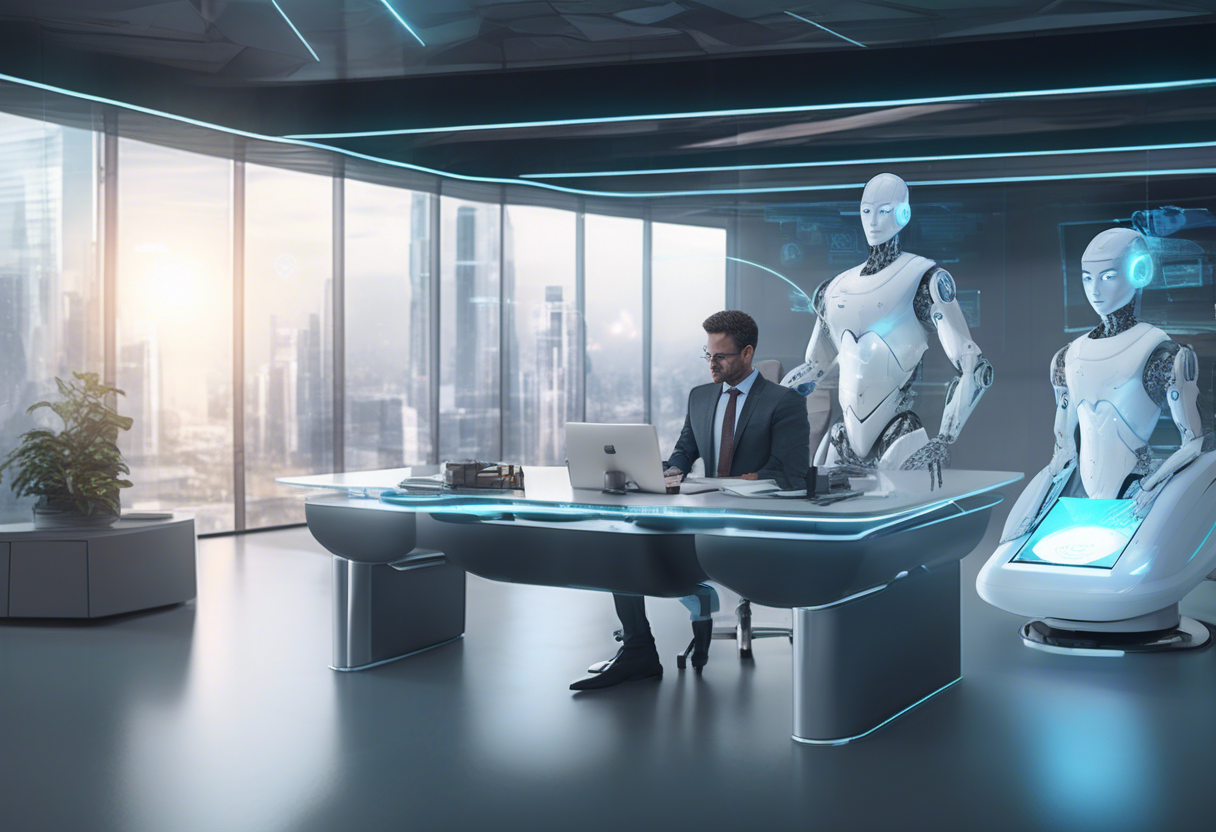
AI is changing how HR works, and it's happening right now. Think about a time when AI not only helps with hiring but also makes employee engagement and planning smooth and data-focused. By 2025, AI will likely make HR departments run more smoothly and effectively. About 67% of HR pros think AI will have a big impact on their jobs soon. That's a big number, showing how important AI is becoming in HR. From AI-led hiring to bettering employee experiences, using AI isn't just a trend—it's becoming essential. Companies like Deepbrain AI are at the forefront, offering new ways to change HR. Let's explore how AI is evolving in HR, its many uses, and what it means for the future. This is your guide to understanding the AI-driven world of HR!
Summary: This article describes the evolution of AI in HR operations, focusing on AI-driven recruitment, employee engagement, strategic workforce planning, and contributions from Deepbrain AI. It also addresses frequently asked questions about AI's role in HR.
The Evolution of AI in HR Operations
AI's Journey in HR: From Pilot Projects to Enterprise-Level Integration
AI in HR has come a long way. It's not just about automating the basics anymore; it's now a key player in managing talent. Initially, AI assisted with routine tasks like data management and answering employee questions, reducing the administrative workload by approximately 30%. These early successes paved the way for more advanced applications.

Today, AI supports writing job descriptions, drafting communications, and even generating interview questions. This evolution allows HR teams to concentrate on strategic initiatives such as workforce planning and employee engagement, ultimately making a more significant impact. For example, a company that implemented AI chatbots to handle employee FAQs saved 20 hours a week. They later expanded AI's role to include resume screening and onboarding content creation.
Transformative AI Trends in HR Operations for 2025
AI-Enhanced Recruitment Processes
AI is revolutionizing talent acquisition by focusing on a candidate's potential, adaptability, and emotional intelligence, rather than just their resume. Platforms like Eightfold.ai and HireVue exemplify this approach. With AI's growing prevalence in hiring, approximately 35-45% of companies now utilize it, with the field expected to expand by over 6% annually through 2030.
AI-Driven Employee Experience
AI enhances the employee experience by delivering personalized interactions and real-time feedback. Future AI systems will likely continue to collect and analyze performance data, offering tailored development plans to enhance performance management. Platforms like Glint and Qualtrics use AI for sentiment analysis, identifying opportunities to improve workplace culture.

Predictive Workforce Analytics
Tools such as Visier and SAP SuccessFactors empower HR teams to plan by analyzing historical data. These tools can predict turnover rates and skill gaps, enabling HR to address potential issues proactively, which is crucial for effective talent acquisition and retention.
AI in Learning and Development
AI-driven platforms like Coursera and LinkedIn Learning provide customized training experiences based on individual learning styles. This approach ensures that employees acquire the necessary skills, benefiting both personal growth and organizational success.
Streamlining HR with AI Automation
AI automates routine administrative tasks, allowing HR to focus on strategic objectives. Tools like Workday and BambooHR manage payroll and benefits, reducing errors and increasing efficiency. This shift enables HR to play a more integral role in business strategy, aligning with company goals and enhancing overall effectiveness.
AI-Driven Recruitment and Talent Acquisition
AI Automation in HR Recruitment Processes
AI is revolutionizing recruitment by automating tasks such as resume screening and interview scheduling. This innovation reduces administrative workload and accelerates the hiring process. AI tools efficiently sift through applications to identify top candidates, allowing HR teams to concentrate on strategic goals and high-potential talent. For instance, AI can search databases and social networks to find individuals with the desired skills, sending them personalized messages.
AI-powered chatbots engage with applicants in real-time, answering queries and assisting them throughout the application process. This not only enhances the candidate experience but also expedites hiring. These tools can automate up to 40% of repetitive tasks, enabling recruiters to focus on creating a superior candidate experience and workforce planning.
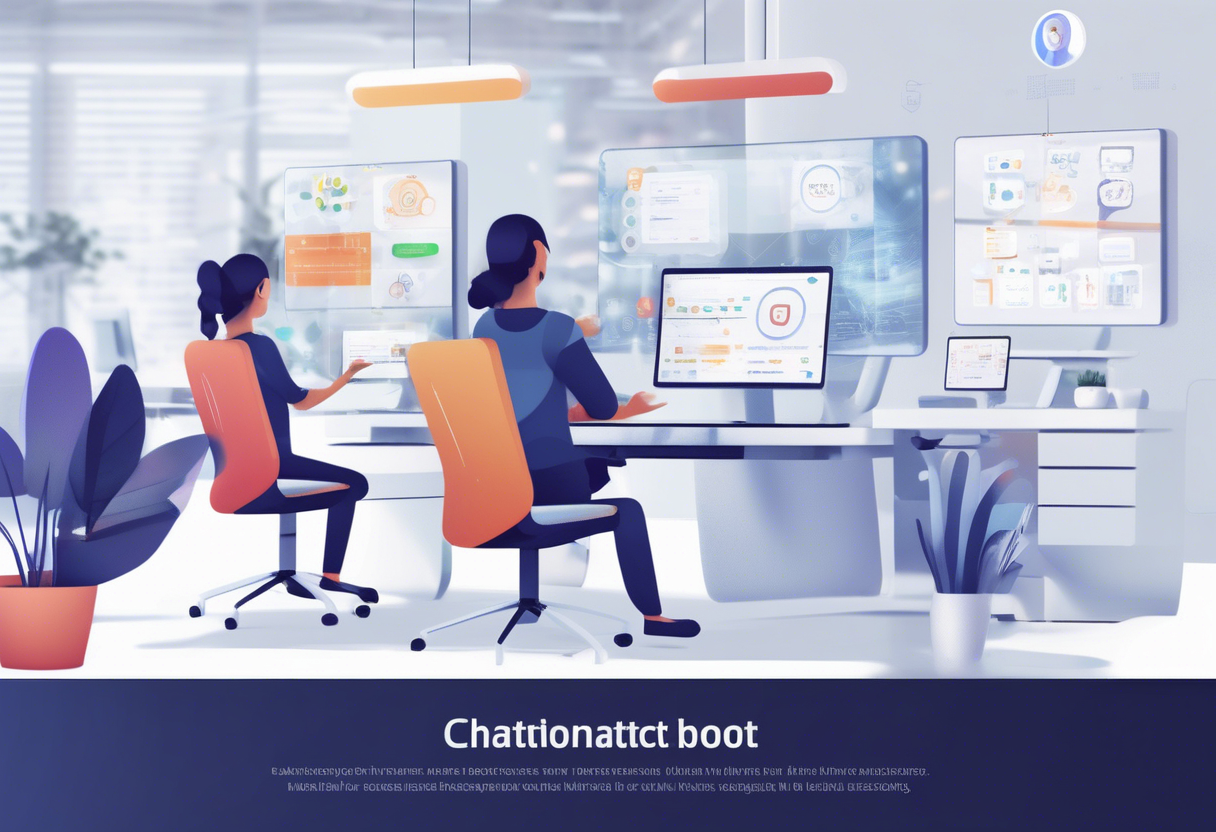
By 2025, it is anticipated that around 80% of companies will leverage AI in HR to enhance efficiency and reduce hiring timelines.
Consider Chipotle's AI virtual assistant, 'Ava Cado', which increased application completion rates to over 85% and reduced hiring time from 12 days to just 4 by guiding applicants through the process.
AI for Reducing Bias in HR Hiring
AI plays a crucial role in minimizing unconscious bias in hiring by leveraging data-driven decision-making. This approach ensures fairer and more efficient hiring through objective assessments. AI analyzes extensive datasets on employee performance and engagement, informing strategies for talent acquisition and retention.
AI-powered screening tools evaluate resumes and cover letters for success-predicting patterns, mitigating bias in the initial hiring stages. By automating preliminary interviews and assessments, AI reduces the bias inherent in human screening.
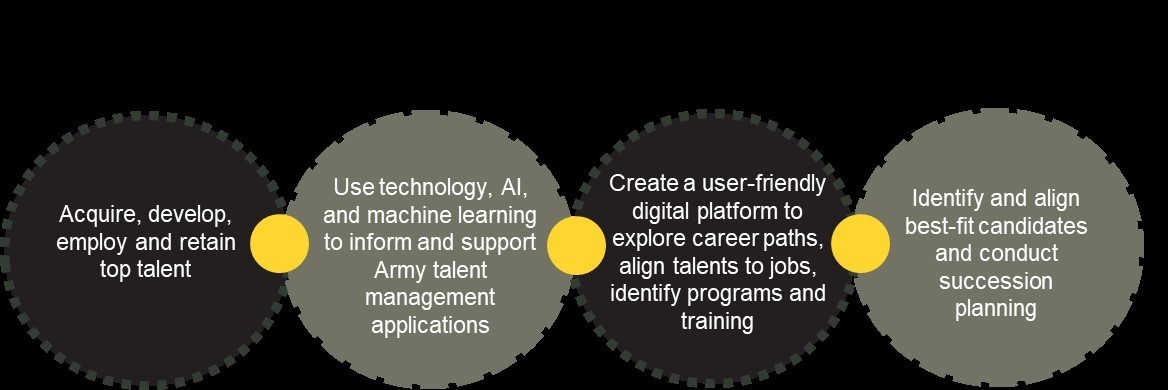
Many organizations utilize AI to rank candidates based on job fit scores derived from objective data, fostering fairer hiring decisions. However, it is vital to train AI systems on diverse datasets to prevent perpetuating existing biases.
Enhancing HR Operations: Boosting Employee Engagement with AI
AI's Impact on HR Operations: Employee Engagement and Retention
AI is revolutionizing how companies address employee engagement and retention. By personalizing experiences, streamlining HR processes, and leveraging data-driven insights, AI enhances understanding of employee needs. Key tools in this transformation include chatbots and virtual assistants, which provide immediate answers to HR policy and benefit inquiries, reducing frustration and increasing satisfaction. Industry leaders like Microsoft and Vodafone are utilizing AI to simplify HR inquiries, thereby fostering higher employee engagement.
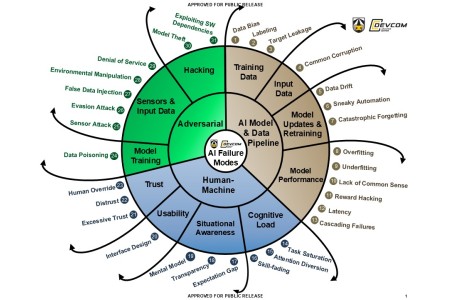
AI also plays a crucial role in identifying employees who may be considering leaving, allowing companies to proactively address potential issues. By timing communications effectively and tailoring messages for different employee groups, AI enhances engagement and builds trust.
Moreover, AI provides managers with real-time insights into employee performance, helping identify skill gaps and top performers who could benefit from further development. For example, IBM's Watson Career Coach delivers personalized career advice, aligning employee aspirations with company objectives, thus enhancing engagement.
AI-Driven HR Operations: Employee Development and Career Pathing
AI is transforming employee development by offering personalized career paths and growth opportunities. By analyzing individual learning styles and performance, AI suggests tailored training programs that promote employee growth and engagement. These tools help employees visualize potential career trajectories and the steps needed to achieve them.
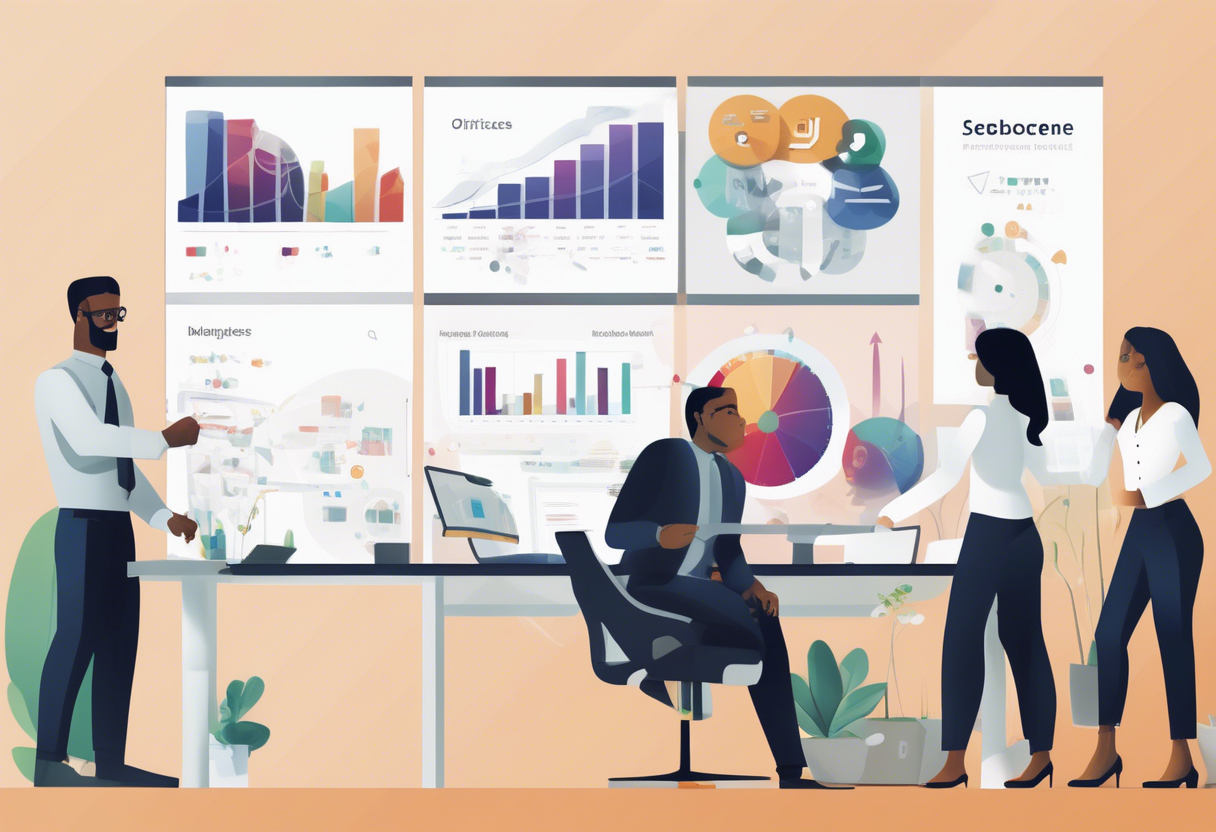
With real-time insights, companies can identify skill gaps and recognize high-potential employees, aiding in development and succession planning. AI platforms also facilitate onboarding and internal mobility, guiding employees through new roles and skill acquisition. Additionally, AI-powered gamification can make learning engaging, boosting retention and motivation.
AI further supports performance management by providing continuous, unbiased feedback and enabling real-time tracking of employee progress. This assists managers in nurturing team growth and motivation. Personalized onboarding with AI ensures new hires receive appropriate content and support, enhancing engagement and reducing manual HR workload.
By fostering career growth and development, AI aids companies in retaining top talent and developing a more skilled workforce, empowering employees to take control of their career paths.
Strategic Workforce Planning with AI in HR Operations
Enhancing Workforce Planning with AI and Predictive Analytics
Leveraging AI in workforce planning enhances both accuracy and efficiency by providing data-driven insights and automating numerous processes. With AI, companies can anticipate their workforce needs and allocate resources judiciously. Predictive analytics examines factors such as turnover rates and seasonal demands to facilitate future staffing plans.
AI tools integrate various company sectors—operations, HR, and leadership—promoting seamless collaboration and improved demand forecasting. This integration aids in preparing for changes like staff attrition or workload fluctuations, ensuring hiring and training efforts are strategically aligned. Additionally, AI supports scenario planning, enabling companies to explore different workforce situations and make informed decisions.
As AI becomes increasingly prevalent, workforce planning is evolving from merely filling roles to emphasizing the acquisition of the right skills, whether through human resources or technology. It necessitates collaboration across finance, HR, and business operations to achieve strategic objectives.
Example: A company utilizes AI to forecast a busy season, allowing HR to recruit and train staff in advance, thereby maintaining high service levels during peak demand periods.
AI Integration with Human-Centered HR Strategies
AI-driven scheduling tools empower employees to manage their work schedules according to personal preferences, enhancing flexibility and job satisfaction. Incorporating AI into HR transitions the focus from reactive problem-solving to proactive strategy development, enabling managers to concentrate on strategic initiatives and employee growth.
Combining AI with human-centered HR strategies addresses challenges such as data privacy, bias, and the evolving skill requirements within HR. AI facilitates collaboration between humans and digital tools, prompting HR leaders to cultivate environments that support this synergy. Today's workforce demands adaptable and personalized work settings, and AI contributes by offering flexible scheduling and workload management.
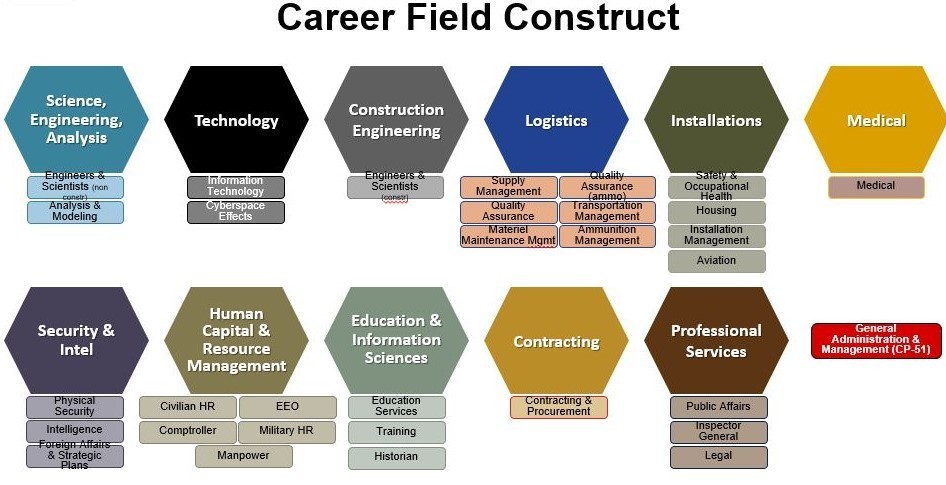
For instance: A call center employing AI scheduling allows agents to select shifts that align with their personal lives, boosting morale and reducing turnover while maintaining operational efficiency.
AI integration in strategic workforce planning and AI-driven talent forecasting are transforming workforce management and HR operations.
Deepbrain AI's Impact on HR Operations
Exploring Deepbrain AI and AI Studios
Deepbrain AI is revolutionizing HR with its AI presenter platforms. These platforms stand out for their realistic facial expressions and emotional depth, designed specifically for large enterprises. They offer:
- Custom avatars
- Tailored workflows
AI Studios by Deepbrain AI takes video creation to the next level, integrating conversational AI technology. This blend of human interaction and digital convenience simplifies large-scale video content creation. Companies leverage these custom AI avatars for tasks such as personalized onboarding videos.
Enhancing HR Operations with Deepbrain AI
Deepbrain AI enables AI avatars to conduct initial job interviews, ensuring a consistent candidate experience while freeing HR staff for more complex tasks. The use of AI-generated videos is pivotal in training and onboarding, reducing repetitive filming and facilitating personalized learning on a large scale.
Key Contributions to HR:
- AI-guided tours and policy explanations by AI avatars enhance onboarding, making it smoother and more engaging.
- AI Studios contributes to corporate training by standardizing onboarding and compliance updates, offering localization and accessibility options.
- HR teams utilize AI avatars to communicate company news, maintaining a personal touch with remote teams and ensuring clear communication during organizational changes.
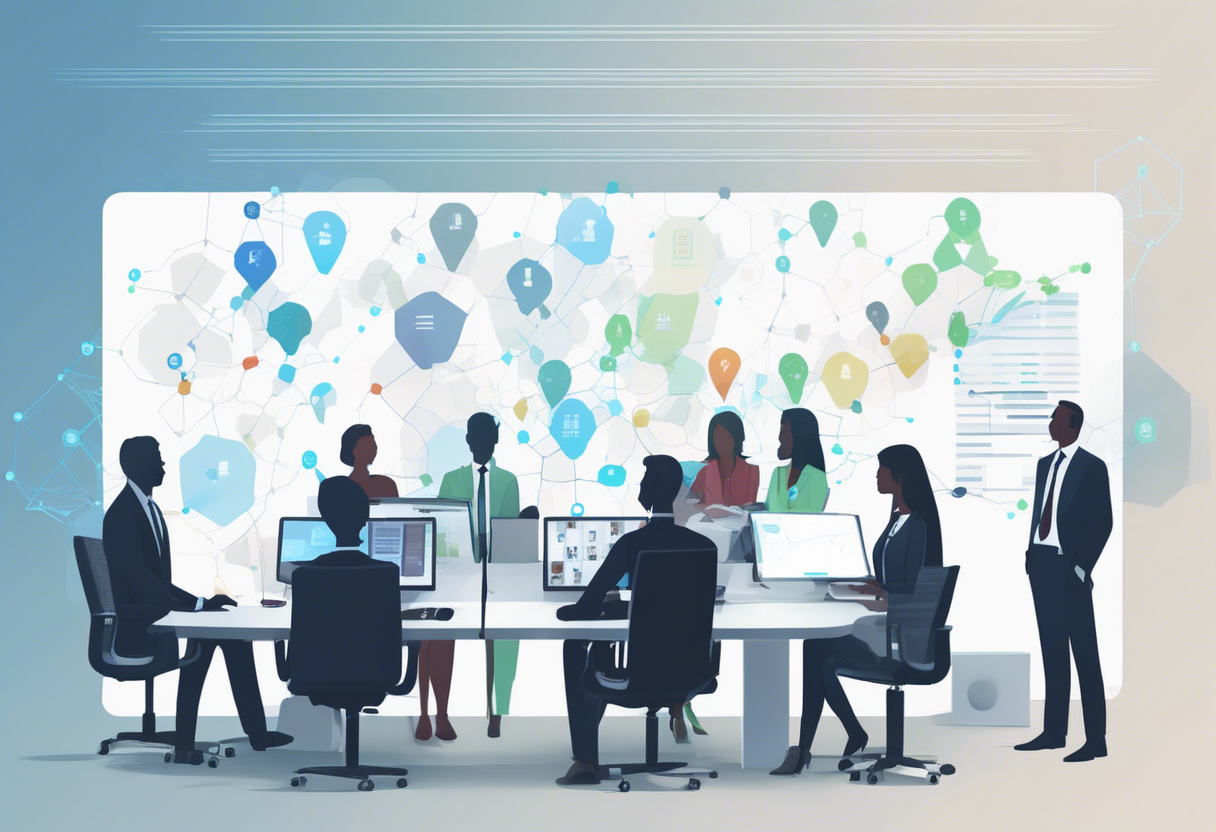
FAQs on AI in HR Operations
How AI Enhances Employee Engagement and Retention in HR Operations
By 2025, AI is expected to significantly enhance how companies engage and retain employees. AI-driven platforms for onboarding could improve retention by up to 82% by making the process more engaging and efficient. These platforms handle paperwork, share policies, and schedule training seamlessly, making the start for new employees smoother and more engaging. For more insights, check out AIHR.
AI can also personalize onboarding to fit each new hire's role and background. This tailored approach helps employees feel supported and ready to dive in, which boosts engagement and retention. Additionally, AI can monitor employee performance and suggest career growth opportunities, enhancing engagement. By setting up learning programs, AI facilitates ongoing employee development, which in turn improves retention. Learn more at IBM.

AI takes over routine HR tasks, freeing HR professionals to focus on strategic work that enhances the employee experience. This shift allows HR teams to dedicate more effort to activities that directly improve retention. Discover more at Zendesk.
Challenges in Implementing AI in HR Operations
Implementing AI in HR comes with its challenges. A significant hurdle is ensuring AI reduces bias rather than reinforcing it. This requires careful design and training of AI models to be fair and equitable. For more information, visit IBM.
Integrating AI into existing HR systems can be challenging and costly. Many companies struggle with updating or replacing outdated infrastructure to accommodate new AI solutions. Explore further at AIHR.
There's also resistance from employees and managers. Concerns about AI replacing jobs or making biased decisions can slow down AI adoption. Learn more at TeamSense.
Data privacy and security are other concerns when AI handles sensitive employee information. It's crucial to comply with regulations and implement strong protections to safeguard employee data. For more details, visit TeamSense.
Reducing Hiring Bias with AI in HR Operations
AI can significantly reduce bias in hiring by standardizing evaluations and focusing on data. AI-powered tracking systems can sift through resumes and match candidates to job descriptions based on clear criteria, reducing human bias. Learn more at AIHR.
AI algorithms can systematically compare applicant credentials to job requirements, making resume screening fairer and less biased. Discover more at IBM. AI tools can also create job postings for diverse audiences, attracting a broader range of candidates. For additional insights, visit IBM.

Some AI platforms source candidates from large, diverse pools and automate interview scheduling, promoting fairer hiring practices. These platforms focus on skills and experience, not personal details, to minimize bias. Explore further at IBM.
By continuously monitoring recruitment processes, AI can identify bias patterns and highlight inconsistencies. This ongoing review helps HR teams address biases, ensuring a fair hiring process.